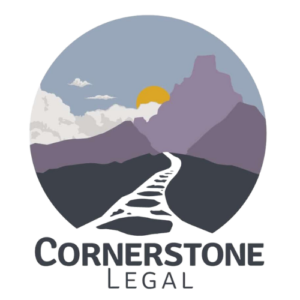Frequently Asked Questions
Estate Planning Questions
Many individuals have so many questions about Estate Planning that it can feel mentally debilitating to just begin a conversation about their concerns and options. Demystifying these concepts and options is one of my major goals when first sitting down with a client. You can start with information explaining what a Will and a Living Trust are on my Estate Planning page.
How can a Will avoid Probate?
You can avoid Probate with a Will if you add joint owners on your accounts, designate beneficiaries on your accounts, and/or sign a Ladybird Deed for your real property.
How does a Living Trust avoid Probate?
A Living Trust can be the owner or beneficiary of your assets. Since a Living Trust is an entity and cannot die, those assets don’t have exposure to Probate.
What is a Pour-Over Will?
A document you sign when you also have a Living Trust to provide an extra layer of protection and maintain control if you don’t fully fund your Living Trust.
What are the risks of joint ownership?
If you add joint owners to your assets just to avoid Probate, you do expose yourself to some risk. Your asset would be subject to your joint owner’s creditors. Additionally, your joint owner has no legal obligation to share your assets with your intended beneficiaries when they survive you and become the sole owner.
Do I lose control of my assets if I put them into a Living Trust?
No. You would be the Trustee of your Living Trust while you are alive and would maintain full control of your assets as if you owned them in your own name.
What is a Durable Financial Power of Attorney?
A document that allows you to appoint an individual to handle your personal financial matters if you become incapacitated.
What is a Ladybird Deed?
A Ladybird Deed is a deed that allows you to name a beneficiary to become the owner of your property when you pass away.
Do I have to put all of my assets into my Living Trust?
Yes, you really should. Even a small asset would require Probate Administration. There isn’t a minimum amount of value that triggers the need for Probate.
What is a Conservator?
A court appointed individual who handles your personal financial matters if you become incapacitated. If you sign a Durable Financial Power of Attorney, your loved ones will not have to go to Probate Court to open a Conservatorship.
What happens if a named beneficiary passes away before me?
I always recommend that you name both primary and contingent beneficiaries on your assets. In most cases, if there is no living named beneficiary, your asset would need Probate Administration.
Does a Living Trust provide asset protection?
Not in the way that you might think. If you properly fund your Living Trust, your assets will be protected from Probate Administration. But you cannot protect your assets from your own creditors just by putting them in a Living Trust.
What is a Healthcare Power of Attorney?
A document that allows you to appoint an individual to make your medical decisions and provide for your medical care if you become incapacitated.
Who should be the beneficiary of my retirement accounts?
If you are married, it is always best to name your spouse as the primary beneficiary to allow them to rollover the account to their own name. If you are not married, your beneficiary would depend on whether you have minor children and/or a Living Trust.
What happens if I need Medicaid in the future?
A Living Trust will not protect your assets from the potential of having to “spend down” to qualify for Medicaid. If you have this concern, let’s talk about connecting you with an attorney that handles Medicaid planning.
What is a Guardian?
A court appointed individual who handles your medical decisions and provides for your medical care if you become incapacitated. If you sign a Healthcare Power of Attorney, your loved ones will not have to go to Probate Court to open a Guardianship.
How do I name Guardians for my children?
You can appoint Guardians in both your Durable Financial Power of Attorney (to act upon your incapacity) and in your Last Will and Testament or Pour-Over Will (to act upon your passing).
Will my beneficiaries pay tax on their inheritance?
Your beneficiaries will not directly pay inheritance taxes. Michigan has not assessed an inheritance tax since 1993. Federal Estate Taxes would only be assessed on your overall estate if the value of your assets exceeded the exclusion amount. Until the end of 2025, the exclusion amount is $11.7 million per person.
What is a Living Will?
A document that allows you to state your wishes regarding the use of artificial measures to prolong your life in the event of an injury or terminal illness.
What is a Funeral Representative Designation?
A document that allows you to appoint an individual to handle your funeral arrangements and make decisions regarding your burial or cremation.
Disclaimer
The information contained in this website is provided for informational purposes only and should not be construed as offering legal advice or creating an attorney-client relationship between the reader and the attorney. You should not act or refrain from acting on the basis of any content included on this website without seeking appropriate legal advice from an attorney licensed in your state.



